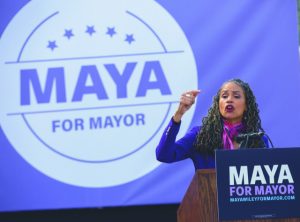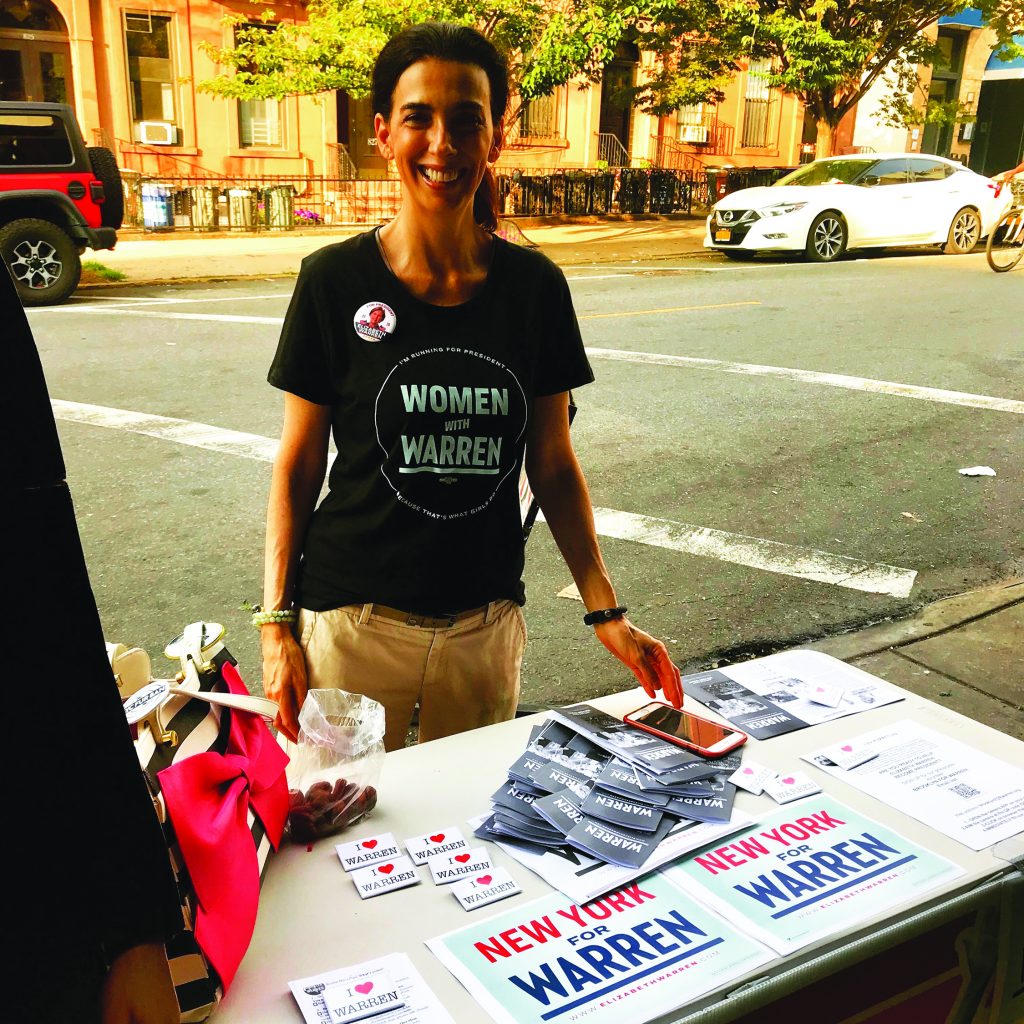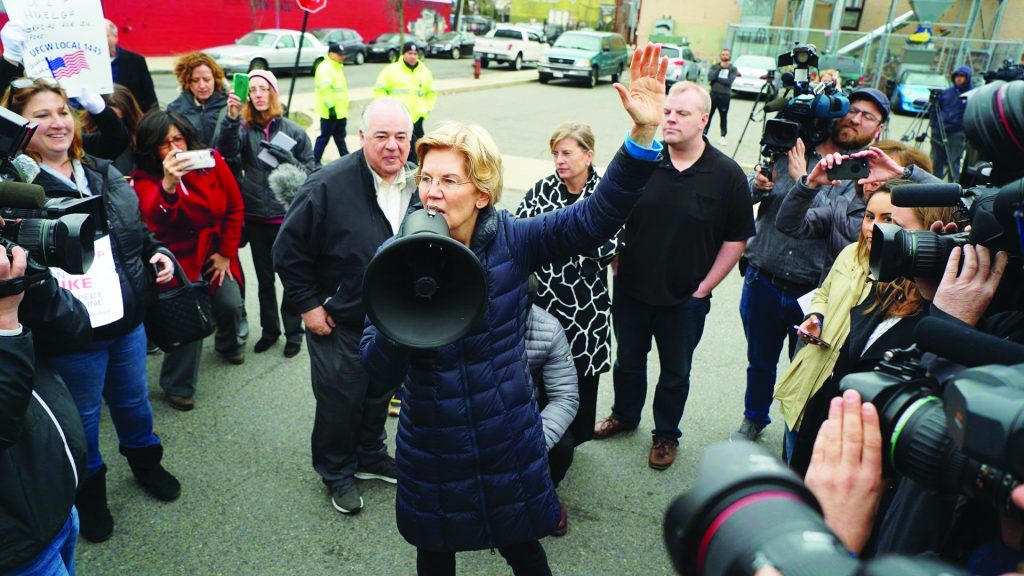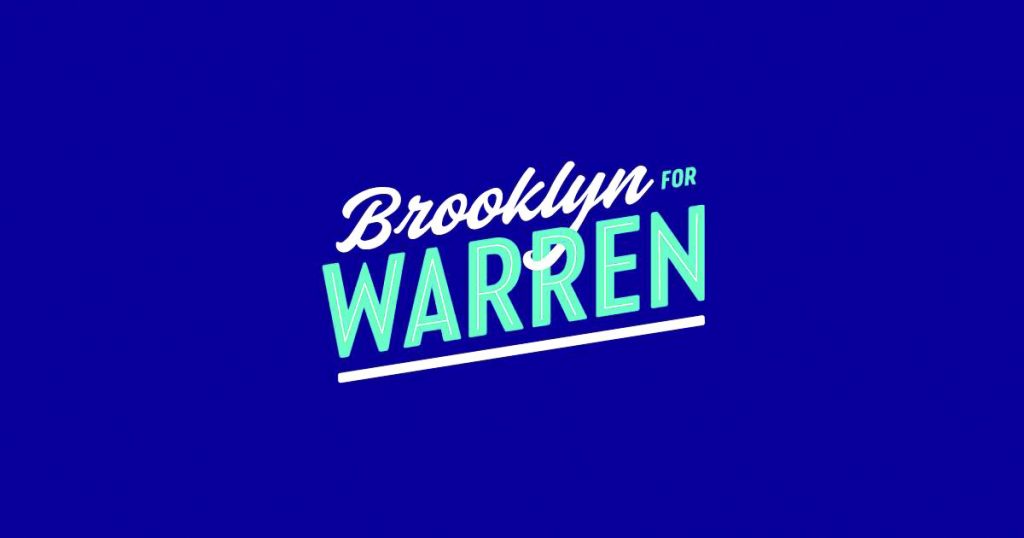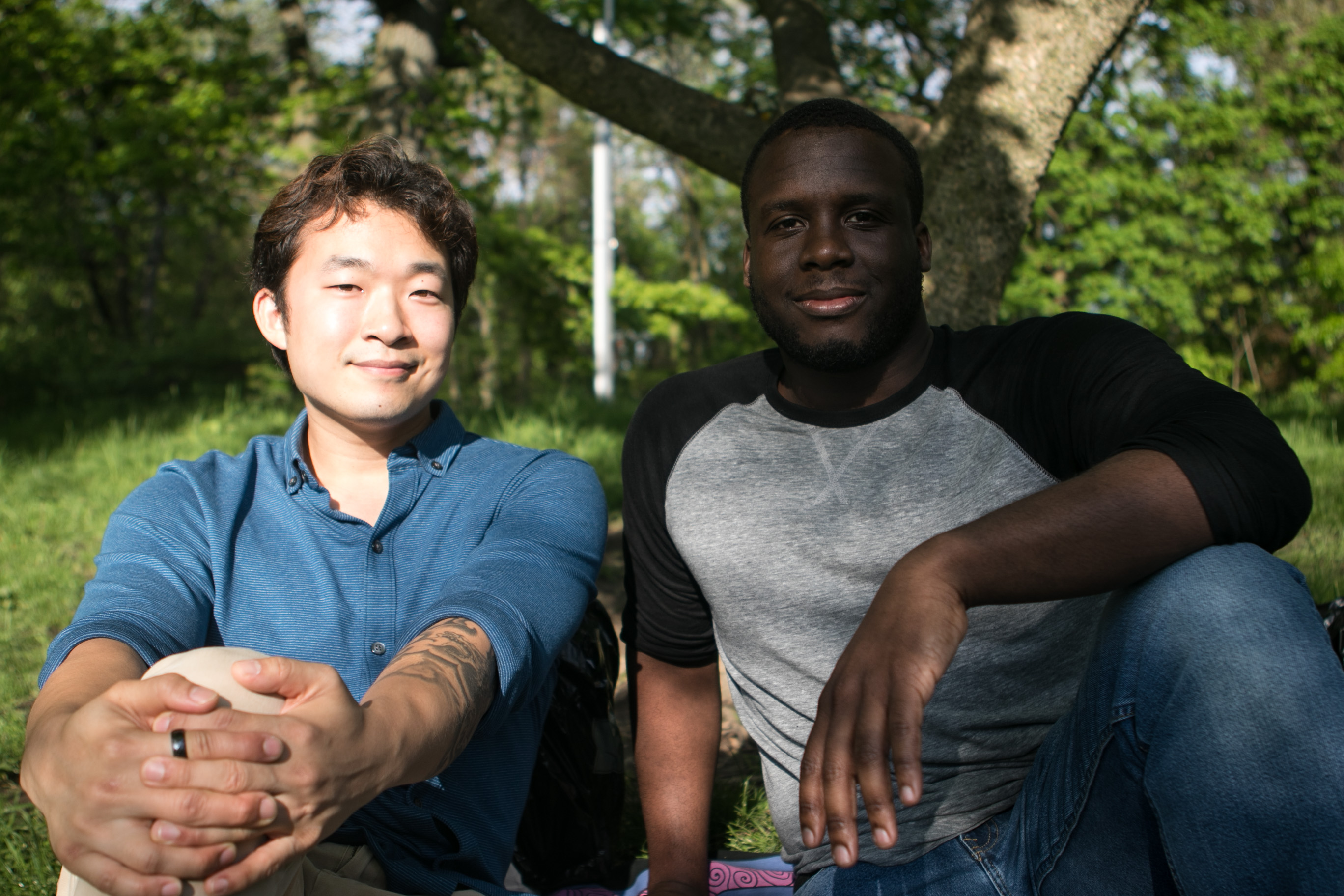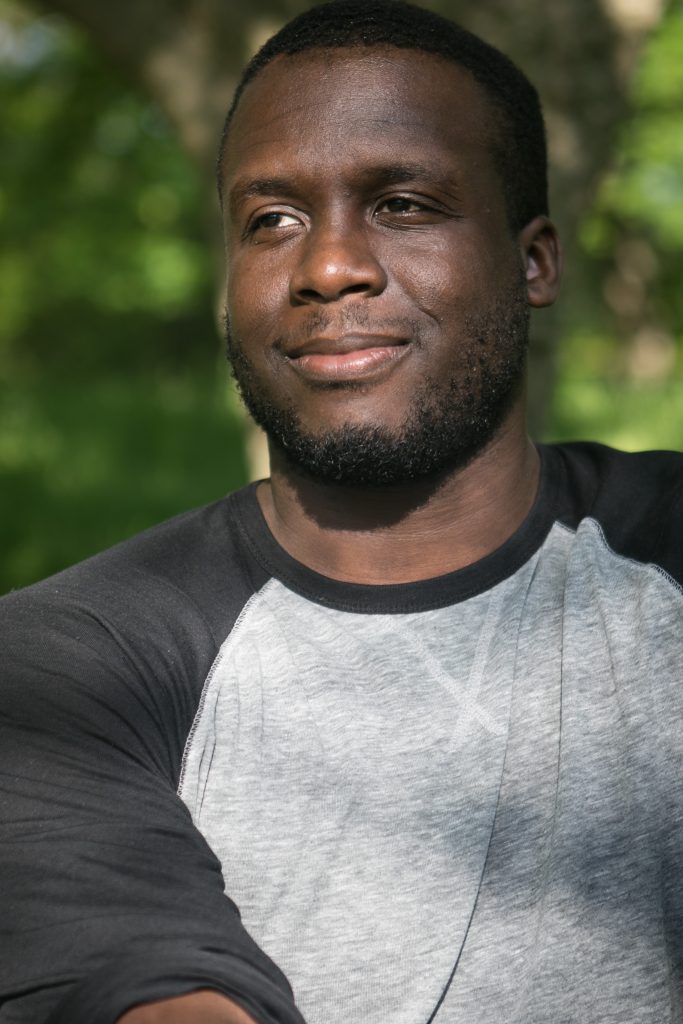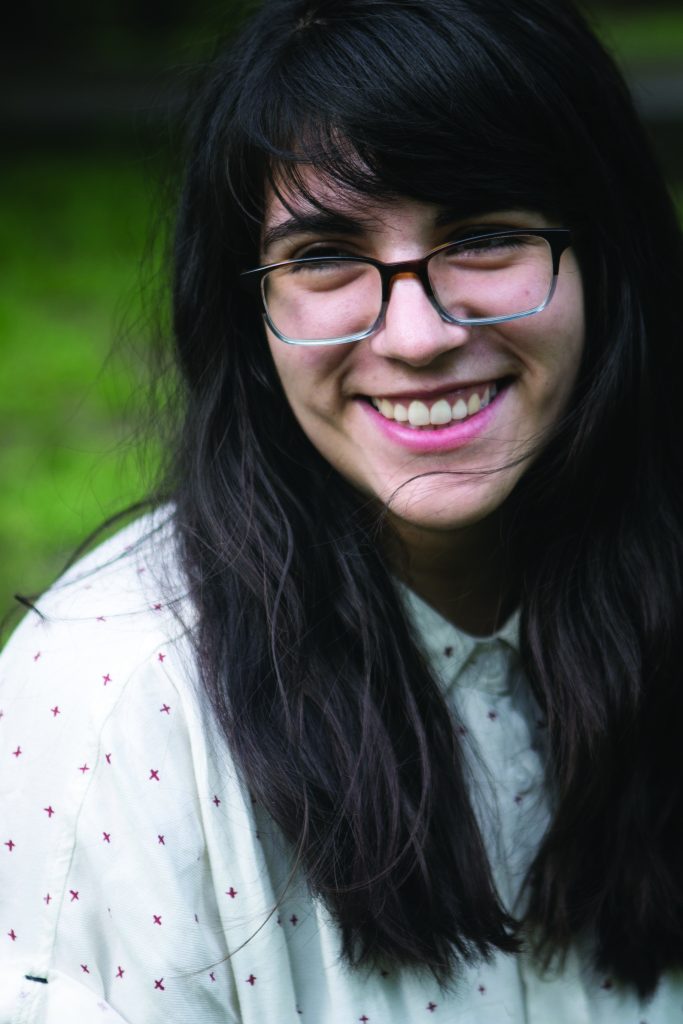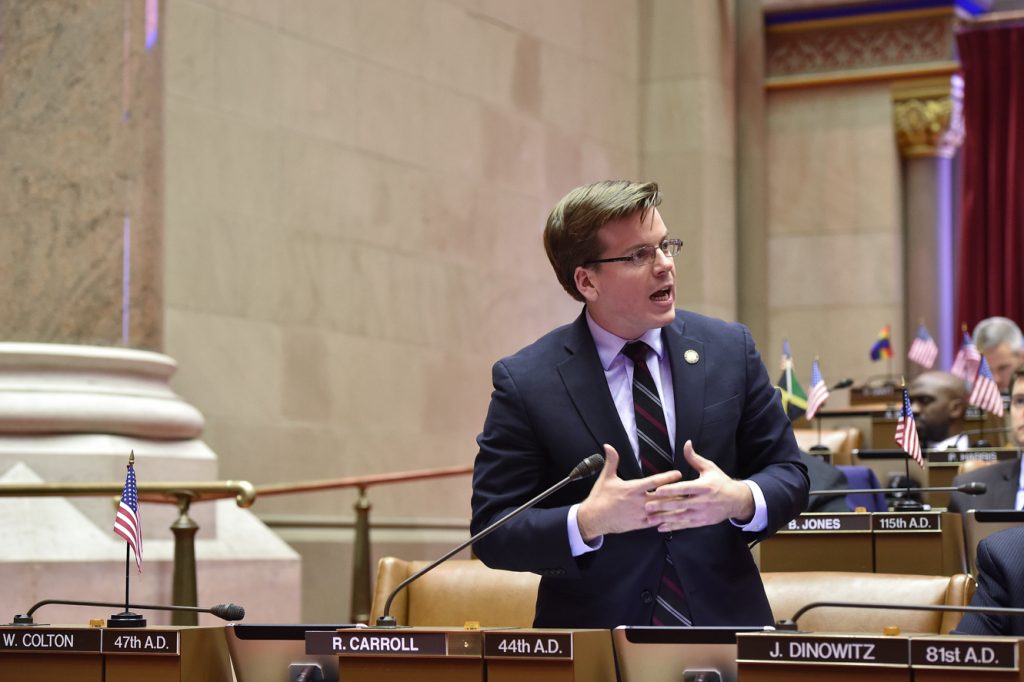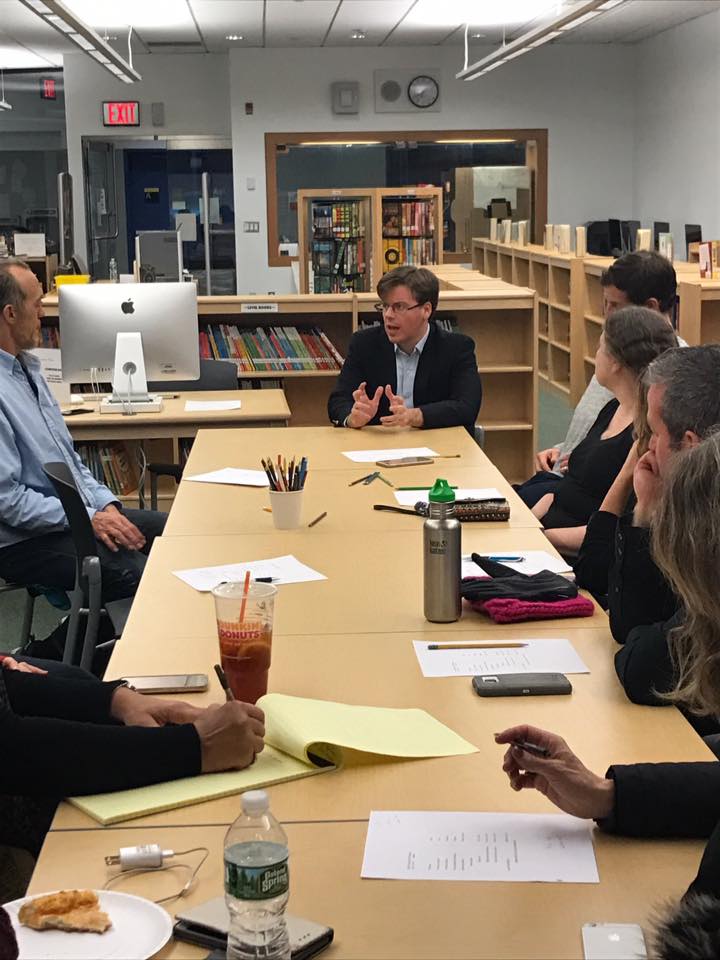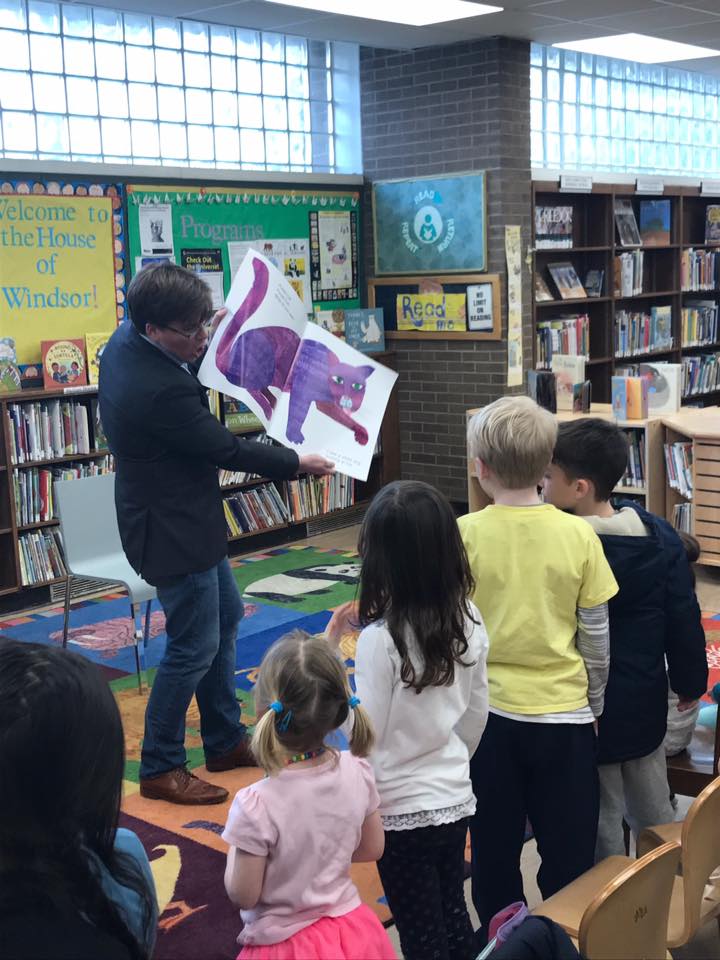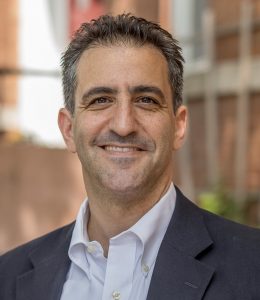
Meet the Civil Rights Attorney and Democratic Community Leader Running to Represent Brooklyn’s 39th District
“When people see politicians with children, they often assume that the children are being used as props. For me, bringing them to work is a necessity and a reality,” said Doug Schneider, over the phone. He regularly brings his children to work, including in the political arena. His seven-and-a-half-year-old son is a 1st grader at PS 107; his daughter is four. Schneider is transparent about the challenges of being a politician and equal caregiver; and, after a year of overseeing remote learning for his son, among countless other pandemic-related complications, he makes a strong case for normalizing children in the workplace— including on the campaign trail.
In the fall of 2020, Doug Schneider, a civil and criminal defense litigator and Democratic District Leader for the 44th Assembly District, announced his candidacy to represent City Council District 39 in the upcoming Democratic primary election. District 39 includes Park Slope, Gowanus, Carroll Gardens, Columbia Waterfront, Cobble Hill, Windsor Terrace, and portions of Borough Park and Kensington. Schneider joined the primary for term-limited Councilman Brad Lander’s seat, while Lander himself is in the running for City Comptroller. Recently, Schneider’s campaign received the endorsements of 39 community leaders, including support from other District Leaders, PTA leaders, climate activists, worker’s rights advocates, and activists for transportation and street safety.
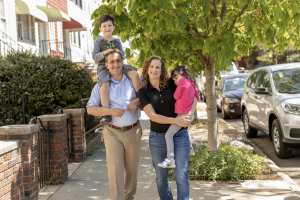
“As we face a post-pandemic recovery, we need experienced leaders with a proven record of results,” Community Leader, Dorothy Siegel, told Bklyner in a statement. Siegel is the founder of ASD Nest, a community-focused program that specializes in serving the needs of children living with an autism spectrum disorder. Siegel is right— City Council needs an experienced leader with both a history of community leadership and an agenda to ensure a full economic recovery.
In addition to historic economic fallout, the novel coronavirus pandemic exposed some of our nation’s deepest inequalities. In New York City, once the center of the global outbreak, many low-paid workers were forced to continue working in unsafe conditions, without proper PPE or adequate salary. When schools shuttered, women disproportionately left their careers to become full-time caregivers, and now struggle to reclaim footing in the job market. Those from historically underserved communities have experienced the highest rates of eviction, viral infection, and death. For these reasons and more, Schneider is committed to not only rebuilding District 39 but also plans to address the longstanding discrimination that has hindered minority communities.
The focus of Schneider’s campaign platform is: 1) Transportation and Street Safety, including reimagined sidewalks and bike lanes, accessible public transportation, and the expansion of traffic safety enforcement and speed cameras; 2) Economic Recovery for small businesses, women and working parents, and out-of-work New Yorkers; 3) Education, including updated school infrastructure, expanded after-school programs, a pandemic-response taskforce, and substantial investments in higher education; and 4) Constituent Services, providing a broad range of services to constituents, including information on government programs and affordable housing resources, and an expansion of language access at the polls.
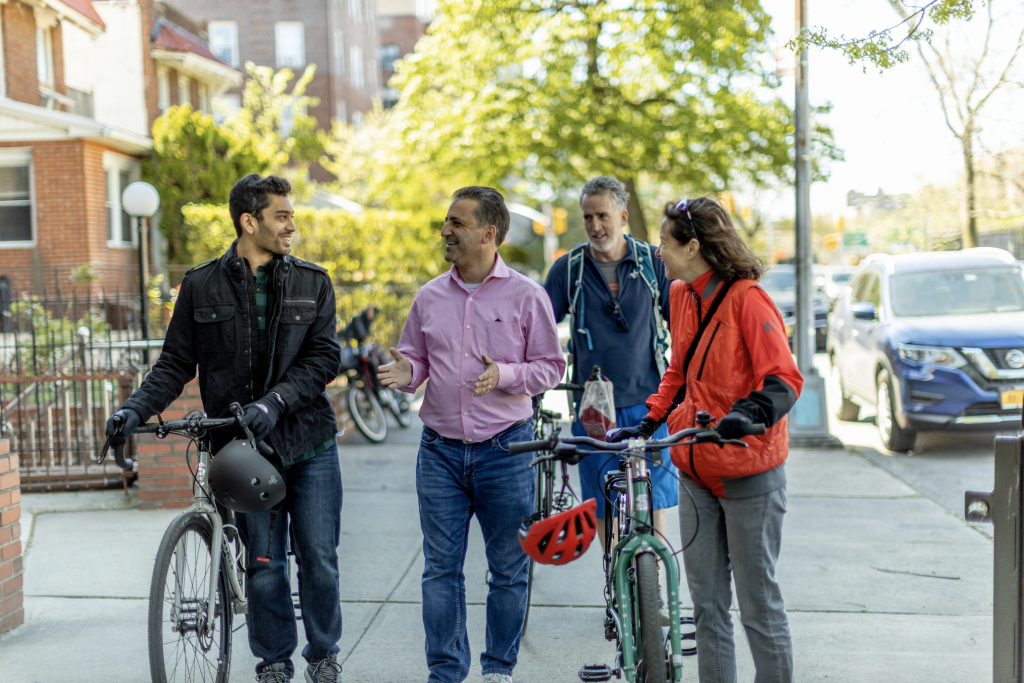
Schneider’s ties to Brooklyn—and more specifically, to Park Slope— predate his plans to run for City Council. Though his parents are both from Brooklyn, Schneider and his siblings were raised in New Jersey. After graduating from law school and marrying his wife Joni, the couple decided to settle in South Slope, where they have resided for almost 15 years. Around the time of the 2016 presidential election, Schneider began to consider his run for City Council, as he did not like where the Trump Administration was leading the country.
“I always had an interest in politics but never saw myself as someone who could get elected,” said Schneider. His involvement in volunteering for political campaigns goes back to 1999. After graduating from college, he worked as a congressional aid before attending law school. In recent years, he has served as a Trustee to the Park Slope Civic Council and has previously held a seat on the District Committee for Brad Lander’s participatory budget initiative.
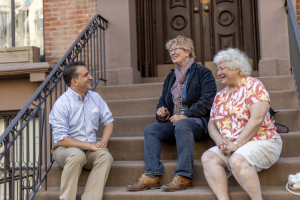
“I saw where things were headed and I didn’t like where they were going. I began to think that I could make a difference,” Schneider said. He thought about the leading issues of the Brooklyn Democratic Party and the need for greater transparency. “I decided to run on issues that were at the forefront because they matched with the things that I have always been passionate about,” he told me. Schneider then shared his lived experiences as a small business owner, attorney, and activist.
Schneider’s law practice focuses on civil and criminal cases, including employment discrimination and business litigation, and occasionally, pro-bono representation for street safety activists. He has worked with clients on cases related to employment discrimination, including a technician who was fired for a disability and a personal assistant who was wrongfully fired for being pregnant while she was on approved maternity leave. Schneider has also represented individuals charged with state and federal crimes, in addition to individuals under investigation by the federal government and the State of New York.
As an experienced attorney and fierce advocate for civil rights issues and criminal justice reform, Schneider is also committed to bringing police reform to City Council by passing legislation to hold officers accountable for misconduct, and reallocating resources to invest in underserved communities.
In July of 2020, after months of school closures across the country, Schneider organized a DOE town hall meeting to discuss NYC’s re-opening plans and devised strategies for creating long-term solutions to safely re-open schools. Subsequently, Schneider organized a protest outside of City Hall in November, demanding that New York City schools stay open. Despite the city’s increasing positive test rate for COVID-19, the positive test rate in schools was under 1%.
“There was a path to doing this effectively, but the plan to fully re-open schools couldn’t be waiting until COVID completely disappeared,” Schneider told me. “We knew that we would eventually get to a point like today, where we are vaccinated, but we had to act before then.” He explained the lag in long-term planning and its negative effect on the mental and emotional health of students.
In addition to the implementation of the Pandemic Response Emergency Plan (PREP), Schneider’s multi-step solution to long-term pandemic planning, he also plans to expand after-school programs, restore arts curriculum, and address the longstanding racial divides within New York City’s school system. Schneider has pledged to end the school-to-prison pipeline by replacing law enforcement with social workers and mental health professionals.
I asked Schneider how he and his family were managing to recover after a year of such intense devastation.
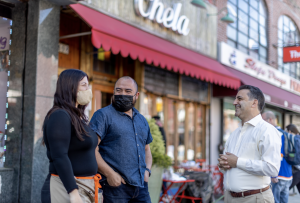
Quietly, I wondered how a politician like Doug Schneider—with his extraordinary record of experienced leadership and Herculean efforts to rebuild his community— was able to hold down a day job AND be an equal caregiver. His answer was remarkably, human. He told me that his family survived in 2020. They continued to persist one day at a time— albeit still adjusting and still making mistakes, like “too much screen-time on some days.”
“We have to forgive ourselves for our mistakes made during the pandemic that allowed us to get by,” he told me. “New Yorkers are resilient and communal […] and we all did what we had to do to survive.”

